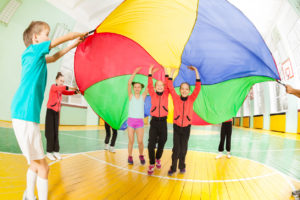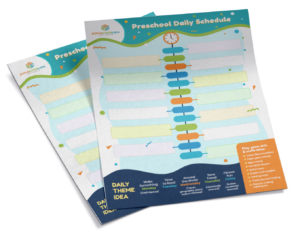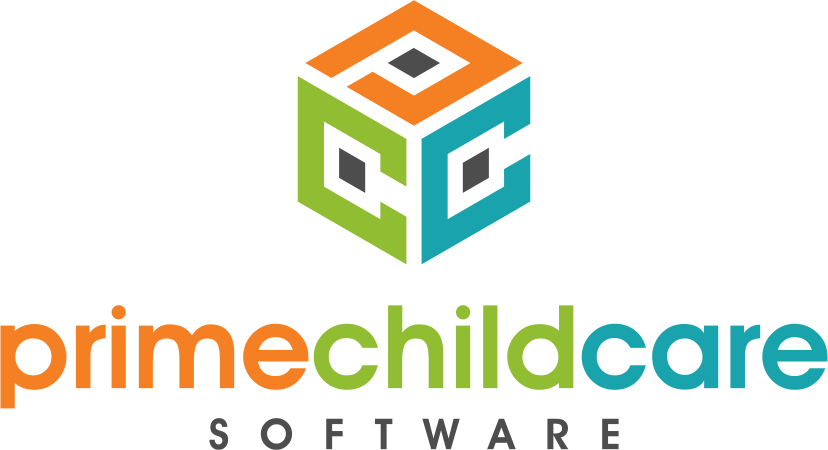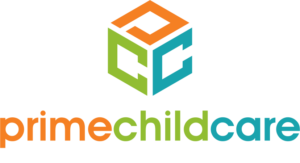Despite being deemed “essential” in many states, childcare centers in America are struggling with reduced headcounts and skeleton staff. According to research by the National Association for the Education of Young Children and Early Care & Education Consortium, childcare programs in the United States have lost nearly 70% of enrollments since the beginning of the COVID-19 pandemic. With many childcare centers temporarily closed due to shelter-in-place orders, this is an excellent opportunity to focus on operational and facility improvements.
That said, one thing’s certain: this pandemic will end. And when it does, how you spent your “downtime” will be critical, especially in terms of affording you a competitive advantage.
As with other temporary closures, your business is perfectly positioned to implement change now. Your halls are empty of staff and students. And, with no operational barriers in place, you have the ability to make profound changes without impacting day-to-day workflows.
But, where do you start? Below, we offer some ideas for operational and facility improvements to help your childcare center grow in the short and long-term.
Look Into Facility Improvements, Maintenance, & Cleaning
Having a properly equipped childcare facility is a crucial component of promoting a healthy learning environment. The conditions in which children learn directly impacts their pace of learning and development. According to a wealth of child development research, classroom layouts and social environments can have positive or negative effects on childhood behaviors.
Here are some research-backed facility improvements to help you foster a positive learning environment:
Playground Areas
- Creating a safe playground area for children to explore, play, and interact with nature has been shown to boost physical health, improve motor skills, inspire creativity, and reduce stress. Plus, being outside can boost vitamin D levels in the body. Unfortunately, around 50% of children don’t play outside daily. So, designing the appropriate space to facilitate this play can do wonders for your staff and the children at your facility.
- The Standards for After School and Youth Development (Council on Accreditation) has an entire section dedicated to helping childcare centers develop appropriate outdoor play settings.
- Tip: Make sure your facility’s outdoor environment is a safe space. Look for broken equipment, protrusions, stray nails and tools, sharp edges, electrical wiring, etc.
- Consider adding more windows to classrooms. Research shows that access to daylight improves children’s behavior, cognitive skills, and overall mental wellbeing. A few more classroom windows (especially in classrooms that are dimly lit) can do wonders for children.
- Tip: The U.S. Department of Energy collaborated with other federal agencies to create The Daylight Dividends program, which offers guidance on how childcare programs and schools can incorporate light into their facilities.
- Your facility’s color scheme can also impact how your young students learn. There’s a surprisingly deep well of research on this particular topic. We won’t go into “right” or “wrong” color schemes — since it depends on student ages, facility layout, and space. However, we heavily recommend that you start with this massive body of research on the use of color in early education (complete with pictures).
Hygiene-Based Improvements
In addition to facility upgrades, it’s important to keep facilities clean and free from hazardous chemicals, viruses, and bacteria. Young children (because they tend to mouth objects) are susceptible to infections. So, environmental contaminants that don’t generally impact adults can easily endanger young lives.
To protect children, we recommend a two-pronged approach. First, train staff on hygiene etiquette and practice. Emphasize the need to meet or exceed industry standards and compliance regulations. Second, implement a thorough “spring cleaning” of your childcare facility. Before you begin, identify potential hazardous issues and implement facility safety checks — such as fire, health, or building code walkthroughs.
This is a Great Time for Wide-Scale Operational Improvements
The primary goal of your childcare center is to create a holistic, supportive, and healthy learning environment for children. But, behind the scenes, operational efficiency is a critical support. From managing staff to maximizing tuition intake, you have your hands full of administrative and operational duties.
But, when things are closed, you have an opportunity to examine your workflows to determine if you’re taking the right steps to minimize pain points and maximize overall productivity. You want to spend your time communicating with children, parents, and teachers — not processing paperwork, scheduling, training, and invoicing.
Typically, operational improvements start with technology. So, begin by examining your existing technology stack for opportunities. Do you have an all-in-one solution that can handle student records, parent engagement, curriculum, admissions, billing, accounting, reporting, and all the other operational requirements that make your childcare center tick?
There are plenty of smaller opportunities for tech operational improvements. Does your current facility management software support mobile usage? A staggering 66% of small business owners operate their businesses via their mobile devices. Chances are, you and your staff need to be able to access your software on tablets and phones. This reduces unnecessary downtime and increases productivity rates.
Here are some common childcare facility pain points that should be top-of-mind when scouting new technology or reviewing existing systems:
Technology Pain Points
- Can you send daily reports and photos documenting student achievements to parents?
- Tip: Parental engagement improves child learning outcomes.
- Can you easily track headcount and attendance for billing purposes?
- Do you have an easy way to track curriculum, rosters, enrollment, and tuition?
- Are you able to access student dietary needs, allergy information, and immunization reports on-the-fly?
- Is there an easier way to customize all of your forms (enrollment records, permission slips, etc.)?
- Can you easily create and customize nutrition plans?
- Tip: Proper nutrition is critical for childhood brain development.
- Do your systems support scheduling, payroll, benefits, and other HR administrative needs?
- Is your billing system capable of supporting online billing, credit cards, and mobile wallets?
- The average consumer uses over 3 different payment methods.
- Does your facility management software offer configurable reporting?
- Is your security optimal?
- 43% of cyber breach victims are small businesses, and 60% of small businesses hit by data breaches close their doors within six months.
- Does your facility management software integrate with the rest of your tech infrastructure?
Some Quick Operational and Facility Improvements to Consider During Downtime
While many operational and facility improvements are intensive projects that require much planning and research, there are several quick-and-easy ways to maximize the value of your childcare program.
1. Increase Parent Engagement
Parental engagement aids in childhood development. It also helps your business deliver better services to your core customers (parents). From simple strategies like increasing parental involvement in classroom activities to sending parents automated daily reports and achievement notices, there are many ways to increase engagement.
Tip: Check out our free guide on managing difficult parents to get extra tips on parent engagement.
2. Implement Additional Staff Training
While “training” often comes with a plethora of costs, there are ways to facilitate staff development without spending a dime. You can hold meetings to discuss emerging childcare trends and COVID-19 CDC guidance for daycares. Or, you can enroll staff in free online childcare courses. As long as your staff has been properly onboarded, further professional development can occur on-site — with the right setup.
Tip: Consider setting aside a room for training sessions. Utilize it regularly to keep your staff on the cutting-edge of child development practices.
3. Start Conserving Resources
Conservation isn’t just good for the planet and your facility’s image, it’s also great for your finances. Occupancy sensors and daylight harvesting systems can save your center up to 50% of its total energy costs. Meanwhile, water-saving fixtures can also save thousands of gallons of water — especially in childcare settings where water usage is higher than average. While upfront costs to install some of these features may be high, the life-time cost savings are enormous.
Tip: Make facility changes based on the EPA’s environmental health guidance, and teach children about conservation. Both will save energy and resources as you navigate the new normal in post-COVID-19 operations.
Are You Looking for An All-in-One Center Management Software That Can Help You Maximize Operational Efficiencies?
Closing down doesn’t have to mean losing revenue. By focusing on operational and facility improvements during your downtime, you can set your center up for long-term cost savings and growth. Are you looking for a cloud-based childcare management software that will provide you with the solutions you need to run a hyper-successful childcare center? If so, contact us. We can help you turn that downtime into an opportunity for growth.
Recent Articles from Prime:

3 Ways to Increase Parent Engagement in Early Childhood Education
The benefits of parental engagement in early childhood education are many. Read on to find out how to increase parental engagement organically and seamlessly. … Read More

Building A Constructive Parent Feedback Program For Your Childcare Center
Survey Says: Constructive ways to Collect, Evaluate, and Implement Change Based on Parent Feedback. Do you consider the parents of your preschool, day care center, or after school program to be enemies or allies? Have you ever even thought about

5 Fabulous Classroom Ideas for August
With a little help from the authors of 365 Days of Classroom Fun, we’ve brainstormed some happy-spirited activities for students this summer. We’ve already covered June and July (tip: bookmark these for next year). So, grab a few vinyl records, a book, and some pet pics. Let’s create some magical moments. … Read More

9 Festive Classroom Ideas for December
Interactive learning provides children with the space they need to bond, socialize, and grow. It can also foster interest in education because it engages and piques their interest and curiosity. Below are nine fun ideas to infuse some fun activities into your classroom this December. … Read More

12 Simple Ways to Incorporate More Movement into Your Daycare Lessons
One of the keys to successful children’s development is the movement. Research shows that encouraging movement can give children an opportunity to develop self-awareness, master non-verbal ways of communication, and learn more about their bodies. … Read More

Preschool Daily Schedule Template
We know that planning out your days can take some serious work and organization. To help you plan your daily schedule, we’ve put together a schedule template for you to print out and fill in with your plans.
Check out this pre-made schedule sheet to help customize the plan for your children’s days! … Read More






